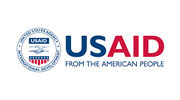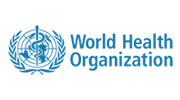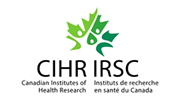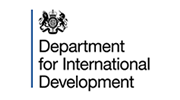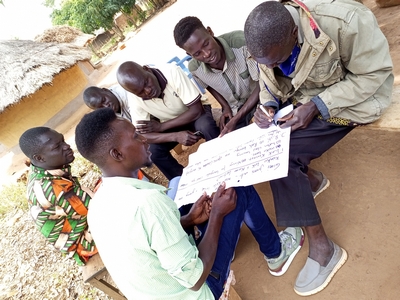
Written by George Kisetedde
On 3rd August, 2022, the CHDC (Child Health and Development Centre) disseminated study findings from one of the research studies carried out at the centre. These findings were presented under the title, “The Prevention of Violence against Children and Women: Baseline and Implementation Science Results from Parenting Cluster Randomised Trial.” Moderated by Dr. Anthony Batte, a lecturer at CHDC. Study findings were presented by Joseph Kahwa, the trial manager of the Parenting for Responsibility (PfR) project, under which this study falls.
Kahwa described PfR as a community based parenting programme delivered to both male and female parents. This programme aims to improve parenting skills, prevent violence against children, and to improve spousal relationships.
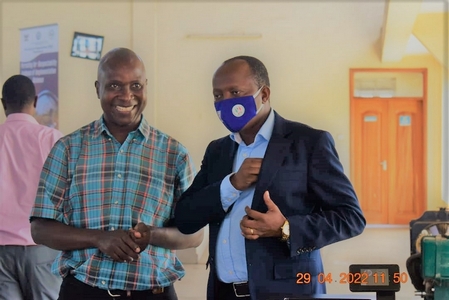
Findings from this study showed that parents maltreat boy children more than girl children. The boys reported more emotional and physical violence than girls. Furthermore, the boy children reported that male caregivers specifically, maltreat them more. On the other hand, the girl children reported more sexual violence from caregivers than boys. On the whole, the children reported that female caregivers emotionally and physically abused them more compared to male caregivers.
More findings, according to Kahwa, showed that 46.5% of parents in Amuru can provide their children with soap to wash, 44.5% can provide school fees, 44.4% can provide school materials, 44.2% can provide new clothes, 43.3% can buy school uniform, and 35.9% can provide a pair of shoes.
How the research is conducted
The study is divided into 16 group sessions. The first 9 sessions are single sex, that is, male caregivers and female caregivers train separately. The next 7 sessions are mixed with male and female participants combined during training.
Kahwa explained that this programme was initiated to deal with VAC (violence against children) and IPV (intimate partner violence). These two vices are closely linked and have a significant impact on how children turn out.
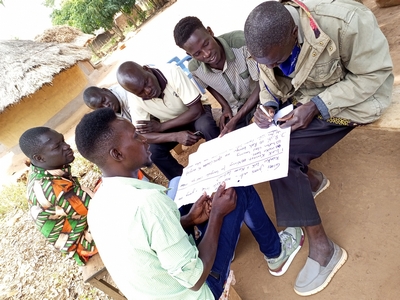
Kahwa added that the PfR research programme aims at addressing the four major factors that may lead to VAC/IPV. These include; poor parental bonding, harsh parenting, unequal gender socialisation and spousal relationships. Poor parental bonding refers to the absence of a healthy close connection between a parent and their child. When a parent and child are not close, the parent may lack empathy for the child and the ability to perceive and respond to their child’s needs. When this bond is weak, a parent is unable to appreciate a child’s needs and can end up being unrealistically tough, which results in harsh parenting. Unequal gender socialisation generally refers to the different expectations that parents have of their children depending on their gender-male or female. The quality of the spousal relationship between parents also affects a child’s life. These four areas are what the parenting sessions concentrate on during the training.
The PfR study employed a cluster randomised controlled trial (RCT) design. Male and female caregivers were recruited from cluster villages in the Wakiso and Amuru districts in Uganda. One child aged 10 to 14 per household was randomly selected and assessed.
The caregivers were divided into two groups; the intervention group and the control group. The intervention group underwent all the 16 sessions of the training while the control group underwent a 2 session lecture on parenting. The impact of the PfR intervention was then ascertained by comparing baseline and endline results (or the before-and-after experiences of parents). The study participants were from 54 Villages selected in both Amuru and Wakiso districts. 108 caregiver groups (54 groups per intervention) were selected. This resulted in 2328 parents recruited and 886 children.
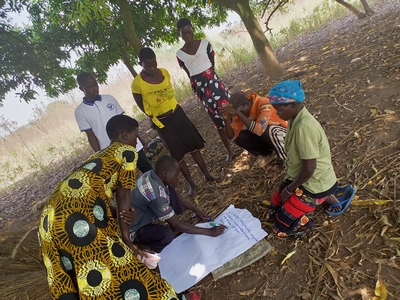
In conclusion, Mr. Kahwa said that maltreatment is still prevalent in the population. Generally, the PfR programme was well-received by parents and it had ad good attendance from parents. The programme also registered good male engagement. The peer facilitators who were recruited also had great potential in expanding the PfR programme at community level.
This study was conducted by Dr Siu Godfrey as the Principal Investigator. Other members of the team included Carolyn Namutebi, Richard Sekiwunga, Joseph Kahwa, Dr Betty Okot, and Martha Atuhaire. They were supported by the Director from CHDC, Dr. Herbert Muyinda and the CHDC Finance & Administration team. The team from Glasgow & Oxford Universities in the UK included, Prof Daniel Wight, Dr Jamie Lachman , Francisco Calderon and Dr Qing Han. On the other side, the team from the SOS Children’s Village from Gulu and Wakiso included, Rachel Kayaga, Sindy Auma Florence and Godfrey Otto.
Edited by Agnes Namaganda
